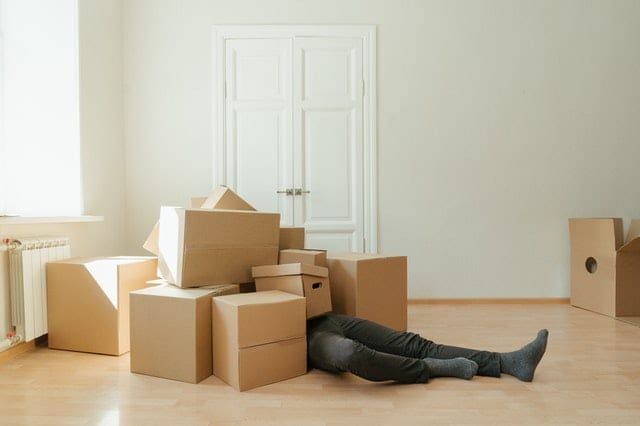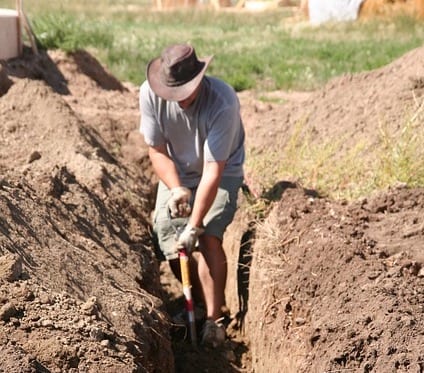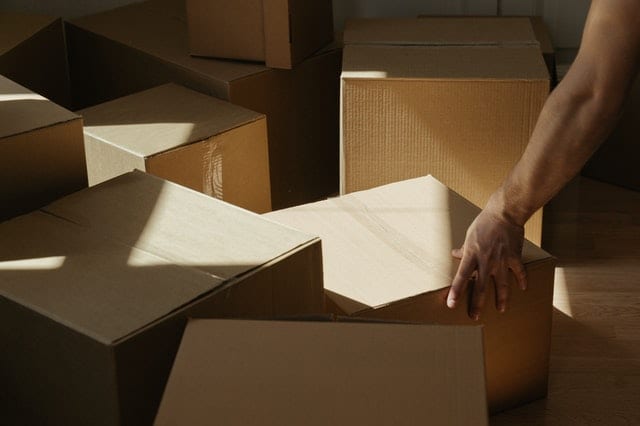Moving to a new place is not only difficult and expensive but also very time-consuming and risky. Whether you're getting ready to own a new house or you're relocating to a new home because of work, school, or any reason, there'10 Most Affordable Places To Live In Alabama For 2020s a lot that needs to be planned before moving day.
Before the big day comes, you need to make a myriad of moving preparations and plan the process.
You can't complete the move over a weekend (unless you're moving locally)“ loading your belongings on the moving truck and transporting them to your final destination may take up to one or two weeks, depending on the relocation distance.
So, how long does this whole moving process take? In this article, we're going to answer some common frequently asked questions associated with the amount of time it may take for you to find a new house and move into it.
The average time it will take you to find the perfect house for you may vary from a couple of days to a couple of months. In cases where youÃ're moving further away (50-60 miles or more from your current location), you may need some additional time to try and figure out which house will be best for you and your family.
You will also need to take some time to research the area so that you can determine which neighborhoods, schools, and other local entities may be best for you to live in or near.
The majority of the people are looking for a house during a period of time of 3 to 5 weeks, this gives them plenty of time in which they can research the area and it allows for more houses to get on the market, as well.
Obviously, not everyone falls into that time frame. And in some cases, individuals may need to move a lot more quickly, and they may be able to find the right house within a shorter time frame if necessary.
But, if you have the time to do so, be sure that you really look around and find a house that you like. Don't settle on something just because you're tired of looking around for a house.
If you want to just settle on something, you are likely going to be in a position where you want to move out within a couple of years.
The short answer it takes 65-70 days to sell an average house. However, this is the median timeline for selling homes and the sales timeline will widely fluctuate from market to market.
While looking for a new house, you will need to arrange to sell your previous house it will take a couple of weeks to stage the house for sale and get a few valuations, then there will be viewings and negotiations with potential buyers and various other details that need to be taken care of.
The entire process usually takes about one or two months, but it may be much longer, depending on the type of your property, the price you request, and its location.
If you're moving out from a rented property, you will need to review the conditions for ending your lease agreement and notify your landlord about your move a month in advance.
The short answer is 2 weeks, however, it depends on different financial factors.
If you're applying for a mortgage on the property, keep in mind that on average it may take 2 weeks but it also can take at least 3 to 4 weeks to get mortgage approval.
You'll need about 10 weeks to complete the transfer of your ownership (making the offer, completing the conveyancing process, closing the deal, and getting a house survey report).
If you're looking for a rental, the process will be much faster and easier once you've found the right place to move into, signing the lease contract will only take about a week (until your future landlord agreed upon the details of the lease and performs a background check on you).
Quick Recap: Generally it takes about 6 months to find and purchase a house, from start to finish. On average a buyer needs 10-12 weeks to find the right property, and between 18 and 40 days to get accepted for a mortgage.
How to Find a Good Moving Company
Total Time: 5 days
You first need to research your options, get recommendations, and look through a Google search. Prepare a list of potential moving companies. A list of 5-7 companies should be fine.
Check their reputations and online social proof. Read their reviews left by previous customers of the companies, review their websites, verify their USDOT numbers, and check their ratings with the BBB (Better Business Bureau)
Request an on-site quote from the top 3 companies from your list. Interview them, discuss the details of your move, and figure out their prices. Let them know what your expectations are.
By now you will have a good idea of who you would like to hire to complete your move. Now, it is time to call them and make the necessary arrangements.
Estimated Cost: 1250 USD
Tools:
Materials: Paper, Pen/Pencil
The better, the earlier you book the services of a trustworthy moving company, so it is advisable to do your own research and make your choice about 6 - 8 weeks before your desired moving date.
Or if you've decided on a self-move, you'll also need a few days to find an appropriate and affordable moving truck to rent and get all the necessary moving equipment.
You'll need to take care of a number of other moving tasks while scheduling your move. It will take about a month to put the necessary paperwork in order:
You need to allow some time to review and organize your papers, as well.
You will - need a couple of days to weeks to sort out and organize your belongings (depending on the size and capacity of your household).
This has to be done about 6-8 weeks prior to your actual move, so that you have enough time to sell or donate your no longer needed items that are still in good condition, to deal with the things you're not going to relocate and throw away any useless, worn out, or damaged ones.
Allow yourself a day or two to create a moving inventory of the items you want to take to your new house.
Your moving inventory list will help you to keep track of your possessions, will double as a packing list, and will serve as proof of the pre-move condition of your belongings should get damaged during the relocation.
Always keep in mind that it will take a lot of time to sell your unwanted items at a profit, you will have to list the items online or to organize a garage sale and arrange payment and delivery.
Hot Tip: If you want to get rid of your stuff fast then donate it to the Salvation Army. However, if you want to sell more valuable stuff then consider selling through Facebook's Marketplace.
The short answer is 25-30 hours to pack a two-bedroom house or apartment. However, each house is different in size and everybody has a different amount of belongings.
Packing a house for moving is laborious and many things can break--so be careful!
You need to have enough time to be safe and ensure the best possible protection to your items packing in a hurry may result in damage to your items and belongings as you won't have the time to take proper care of each and every item.
So, you should start packing as early as possible and spend a couple of hours a day on the task so that you can ensure the safety of your belongings.
Good to keep in mind that packing the storage areas in your home basement, garage, attic, etc., will require more effort and time than packing a standard room, so deal with them first while you have still plenty of time and energy.
Also, make sure that you have all the packing supplies on hand so you don't have to run back and forth to stores. The appropriate moving supplies are:
We have mentioned how long it would take to pack a two-bedroom house or apartment. Here are the estimated times for other types of situations (assuming that you are packing by yourself):
If you hire professional packers, they will complete the task in about:
The short answer is a few hours.
However, the average time it will take to load your belongings on the moving truck depends on several factors.
If you are well prepared and no unforeseen obstacles occur, a team of four professional movers will load the moving truck in about:
Moving to across town, it will take only several hours a day to transport your items to your new house.
But if you're moving across the country, however, the delivery may take several days or may take even a week. The transportation time will depend on the weather conditions, on the traffic, and at the time of your move as well.
Regarding your own trip, you may arrive at your new house after several hours or several days (if you're moving a short distance or if you're flying to your new city, or if you're driving from coast to coast).
You will need a few days to arrange your new house or apartment and unpack your items but it may take you several months to really settle in and feel at home in your new place.
Always you can take advantage of some time-saving tricks if you're moving on short notice or if you're pressed for time.

Yet, it is better to pay attention and take your time to every detail of your move this will ensure a smoother, safer, and stress-free relocation. If you are looking for affordable places to live in Alabama then check out our post.
If you think that the right insurance is enough from keeping you safe from a possible flood and the damage it can cause, we will explain why this is just not enough.
A flood wall is a wall that is built to be water from entering your property or your house. They are used to mitigate storm damage.
In this article, you will learn how to build a flood wall around your house step by step. This way, you can be prepared and keep your family safe.
Did you know that flooding is a common natural issue that happens in the USA? To reduce the risk of your house getting flooded, we will need just a little bit of free time, proper materials, and some energy for a heavy load of work. And, of course, some knowledge - which you can get right here.
The first thing you should know is that there are different ways to build a flood wall, and that depends on your choice. You can choose from pre-constructed flood walls that require little installation. And, of course, you can do it all from scratch.
Before we start with this entire process, let's see what statistics related to floods look like.
Statistics definitely look frightening. Yet, keep in mind that many things can be prevented. Therefore, we have prepared a long and well-researched article that will help you understand everything related to flood protection.
First, let's talk about those emergency situations where the flood has already occurred. Is there something you can still do?
Yes, there is! Bookmark this article so you always have it in case of an emergency.
We haven't mentioned that sometimes you will find yourself in an emergency situation where you'll need to build a flood barrier as soon as possible. For that purpose, you will have no other option than to use the dirt you have in the backyard.
The second thing - think of your property's terrain topography. It is very important to consider the entire yard's expanse because this way you'll be capable of routing the flood in the proper way.
The most important advice here is to leave enough space between your beloved house and the barrier you're making.
How to build an earthen levee?
Total Time: 1 day

Don't just pile up dirt because building a trench first will provide a sturdy base. You will have to dig a two-foot trench in the place where your levee will be.

Fill in your base with sand in rock. By using denser materials such as rocks you can be certain that your foundation is less likely to be swept away by the flood.

Use the dirt from the trench to start building a mound. Add layers and pack each layer down. With the help of your wheelbarrow, you can grab extra dirt from areas that you see fit to take from. Build your wall as high as you expect you need to.
Sufficient compaction is key. Heavy machinery will definitely make this task easier, but if you don't possess any - use your own hands, feet, and shovel blade. Constructing a flat levee is possible if you make it three times wide as its height.
Okay, we're almost finished, cover your barrier wall with plastic. This will make it more resistant to the weather.

Supply:
Tools:
Materials: Dirt, sand, rocks from your backyard and plastic sheeting
But, what if you don't want to wait for the flood to appear? What if your idea is building this wall as insurance against natural disasters? Amazing! We're happy to hear that!
For that purpose, people use self-rising floodwalls. Here are the best options on the market that can help you stay prepared against floods:
1. Water-activated flood barrier. These incredible flood walls are capable to increase their height within just a few minutes. You can expect to get 3.5 inches high barrier whenever water arrives.
It can be used either alone or combined with other wall-related products against flood. You can find a water-activated flood barrier from 5-foot to even 17-foot in length.
2. Pre-constructed flood bags. When facing the water, these can also raise in height and length, protecting your property. People claim that Quick Dam Flood Bags are the best for this purpose. Super simple to install yet very effective.
3. Self-rising water gate floodwalls. This is the premium solution for floodwalls. They are expensive but if you live in an at-risk area they can easily pay themselves off.
Certainly, there are. We will represent to you all other possibilities you can use to keep your family safe from natural disasters. Here is what else you can do:
1. A waterproof veneer Adding this to your exterior walls will definitely add a bonus layer of safety.
2. Flood-resistant materials. When it comes to building your interior, it is always a good idea to use flood-resistant materials. Those are capable to stop water from retaining for up to 72 hours.
3. Think about your fuel tanks. Be sure to secure these if you don't want to have big issues. It is always best to anchor them down.
4. Back-flow valves. Are sewage backups your worry? It's always a great idea to install back-flow valves.
Now we have learned a lot about protecting your home from floods and building different sorts of flood protection, it's a good idea to hear what people worldwide do about this problem.
If your home is located near a river or sea, it's a great idea to be sure that your house is above the water levels. Obvious and the oldest solution is - elevation!
Building your own house on stilts is known within many traditions and cultures, but you can also build your home on a raised platform. Beach houses usually look this way, and you must admit - they're simply gorgeous!
Are you ready to build that floodwall from scratch, or are you thinking about buying some of the newest and easiest versions of it?
It doesn't matter what your choice is, the most important thing is to keep your home and family safe from this natural disaster.
There comes a time in everyone's life when moving from their parents' house becomes necessary.
Even though the thought of an independent lifestyle could be exciting for some, it is also quite terrifying for others, especially for those who are scared to deal with responsibilities on their own.
The latest statistics show that 52% of young adults in the US with ages between 18 and 24 still live with their parents.
These people choose to share their home for various reasons - they want to save money, have exhausting jobs, have kids on their own to take care of, or are simply frightened of the stressful and challenging process of moving out.
But what exactly does this process entail, and where should you start?
If you're wondering how to move out of your parents' house, you've come to the right place.
Multi-generational living is not uncommon nowadays. Nonetheless, there are mixed opinions about it - some move out immediately after becoming students, others live their entire 20's in their parents' house, and others never think about moving out.
Of course, the situation is different for each person, which is why you should focus strictly on the reasons why YOU want to move out of your parent's house.
Therefore, the first thing you should do before deciding to move is to analyze the pros and cons of living with them.
Save money- There is no better reason to start with. Depending on the family, living with parents can save you from paying partial or total rent and many costs such as bills, groceries, and other household expenses.
For this reason, if you plan to save for a new car or even a place to live on your own, sharing the home with your parents for a while can be a great start.

Fewer housework responsibilities- Many people living together means fewer responsibilities in the household for you. If you have a demanding job or are still a student and struggling with dozens of exams, living with your parents will save you from many daily chores, so you will have the time to enjoy other activities after work/class.
Unlimited homemade meals- Another perk of living with parents is that you won't have to cook for yourself all the time or order food - which can be quite expensive if you take into account the three regular daily meals. That will save you both time and money.
Free babysitting- If you have children, your parents will be the ones who will enjoy the most spending time with them. Of course, this could also happen if you do not live with your parents, but sharing the same house will be easier for them to always be close to their grandchildren.
Emotional support- Having your family close in challenging situations can be very helpful. You can always rely on your parents whenever you encounter difficulties in life, either financial or emotional.
Limited space-Not your house, not your rules - that means you can't just break the wall in your room to expand, or to bring things that take up a lot of space, at least not without approval.
Lack of privacy- If sharing all aspects of your life with your parents is not bothering you, then living together will never be an issue. But if you're not much of a talker, consider that it will be hard to live with your parents without them wanting to know what you're doing with your life constantly.
Limited control- Living with your parents as a young adult is like sharing open space with all your neighbors. It will be hard for you to bring friends home, play your music loudly, or cook at three in the morning because you are in the mood to eat french fries.
Fighting the generation gap- Different opinions between generations are common among families. There is a good chance that you do not have the same beliefs and values as your parents, no matter how solid your relationship is. That will make a living with them difficult and stressful in the long run.
Slowing down your progress- It may be surprising, but all the advantages of living with your parents can make a huge disadvantage together - you will slow down or even stagnate the progress of becoming an independent adult.
Sure, free meals and no bills to pay is the dream, but what will happen when you have to do all this yourself? And it will definitely happen at some point in your life.
If you were convinced by the cons and not the pros, that means you officially decided it's time to move out of your parents' house.
In this case, we recommend arming yourself with a lot of patience, because there are some initial costs you will have to consider and some that will require planning a monthly budget.
Take a look at our checklist and see if you are ready to cover all the costs involved in moving to a new home.
How to move out of your parent's house:

Start saving a couple months in advance of your move out. There are cases where you will have to pay the rent for the first month, the last month, and a security deposit - this means a total of 3 months' rent in advance. More than that, you may also need to pay the renters insurance if your landlord or the building requires it.

If you decide to move to another city and have many personal belongings to transport, you will need help. Unless you have some friends willing to support you on this step, you will need some money to turn to a professional movers company.
You can either rent a moving van or truck and let your friends help facilitate the move!

Go to your favorite furniture store and pick out what you need. By paying an extra handling fee you can have the store deliver straight to your new house. When you move for the first time, you will feel that your parents' house had them all. On the other hand, your next home may not have all the things you are used to. Therefore, you will have to make a first-time investment in furniture and some appliances.
Supply:
Tools:
Materials: Lots of patience and planning
The average monthly apartment rent in the U.S. 2017-2021 is $1,124, so you will have to think about whether you can afford to rent before you leave your parents' house. One rule of thumb states that you should spend around 30% of your gross income on rent.
Bills. You will need to have a budget for monthly bills such as electricity, gas, and water, in addition to internet and TV service. However, there are some cases in which, if you rent a place, these bills will be included in the monthly rent.
Health insurance. This is an expense you don't want to ignore. Without insurance, the average cost for an emergency room visit is $150- $3,000 or even more, depending on your condition and the performed diagnostic tests and treatment.
Transportation Costs. If you are a driver and own a car that you use regularly, consider paying for the fuel, auto insurance, and vehicle registration. Moreover, you may have to pay for a parking space.
If you are not a driver, there will still be transportation costs arising from the use of taxis, flights, and all those related to daily commute costs.
Emergency savings. Without your parents around, you will need to build an emergency fund by yourself, which you will use only in emergencies, as you probably already noticed by its name. Depending on your monthly income, and usual expenses, you should put away 3-6 months for the emergency savings before moving out.
Services & memberships. Now it's your turn to pay for services such as the internet or TV, as well as other streaming subscriptions that you used in your parents' house. By putting all this on a list you will probably feel the need to give up a few.
Key Insight: If you have a pet, you will have to pay an additional deposit to cover the possible damages caused by it during the rental period. This fee varies depending on the landlord and can be around $35 or less.
Now that you know what costs to expect once you move out of your parent's home, let's talk about the things you should avoid.

Do NOT move out of your parent's house if:
You have not set a budget. If you make a hasty decision and leave your parents' house without an already established budget, the chances of going back in just a few days are very high. Therefore, you should consider absolutely all the start-up costs involved in moving to your own place and the ongoing ones that you will have to take care of monthly.
You don't have a secure income. Even if you have a budget ready to move into a new house, you will need a stable income to cope with all the expenses. Unless your parents are willing to help you with a monthly amount of money for bills and other costs, having a job it's a must.
You don't have an emergency fund. As we said before, the emergency fund should be mandatory when leaving your parents' house. If you question the need to save at least three months for this, think about the expenses resulting from unexpected events such as a car breakdown or a pipe network issue.
You are planning to move to an expensive place. Nothing wrong with moving to a costly place, but how expensive can it be? If you choose to move to downtown New York or San Francisco, and living there will cost you more than 25-33% of your income, you should consider your decision.
You want to save money. Except for the case when your job is ten times your rent, moving out of your parents' house won't help you save money, at least not in the first few months. If you plan to save money to fulfill some pricey goals, you should wait to do this first before moving out.
Key Insight: Usually, apartment and house leases have a term of 1 year. So, if you are not ready to rent for at least a year, you should reconsider that decision.
All things considered, moving out of your parents' house is an important step that should not be treated superficially.
If you make a hasty decision without having the necessary budget or informing what it means to live on your own and all the involved costs, it is possible to regret moving out too soon.
To learn even more about how to move out of your parents' house, watch the following video.
There is no right age to move out of your parents' house. This decision should be entirely up to you, and you should only move out when you are ready. However, according to the National Longitudinal Survey of Youth 1997 exploring the experiences of young millennials, their median age at the time of moving out of their parents' home was about 19 years.
This amount can cover the rent for several months and some initial expenses. Nevertheless, if you do not have a steady income, a budget of only $5000 will not be enough to live on your own after moving.
If you are afraid of huge expenses when moving out, you should consider a roommate. Sharing rent and other expenses with another person will help you save more money over time.
Finding a cheap rental is rare but not impossible. Cities like Omaha, Tucson, and Springfield have an average studio rent of $615- $841 per month. Despite the advantages of cheap rent, keep in mind that apartments with small rents could be positioned in areas far away from your zones of interest or even your workplace.